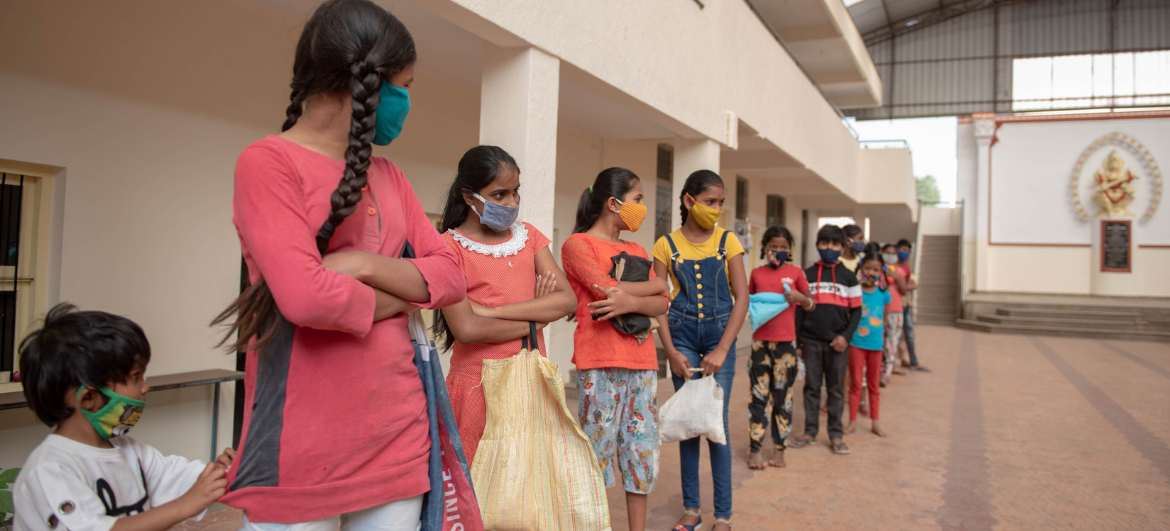Quis autem velum iure reprehe nderit. Lorem ipsum dolor sit nulla or narjusto laoreet onse ctetur adipisci.

Makkala Jagriti
Supported by: Wipro Cares
About Makkala Jagriti
Makkala Jagriti (meaning “Awakening of Children’) is a non-profit organization founded in 2003 driven by the motto: “Where you are born should not limit how far you go”. The vision of the organization is to create a value-based social movement to empower the child and its community toward a bright future. The mission of the organization is to facilitate holistic development for children and diverse groups, in and arounds the community, to build a sustainable and equitable society.
The key strategy adopted by the organization to achieve its vision is to create safe and non-judgemental spaces for children and youth from socio-economically disadvantaged backgrounds and engage with not just the children and youth, but all the stakeholders around them using an ecosystem approach.
Makkala Jagriti currently works in 4 distinct spaces – urban poor communities, government schools, Anganwadis, and government-run childcare institutions. In 2022-23, the organization had a presence in 11 districts across Karnataka reaching approximately 22,000 children and youth daily.
With the support of Wipro, the organization has been working in 4 Government schools and one urban poor community in Bengaluru since 2016, and on an average of 1,000 children every year. In the years 2023-24, we reached out to over 900 children in the age group of 6 to 14 years along with 30 teachers.
The rationale for working with children from government schools and urban poor communities is that they are often first-generation learners without an encouraging learning ecosystem around them. Parents, even if they carry aspirations, have limited education and exposure to be able to guide their children properly.
Children themselves experience a fear of learning and as a result, fail to tap into their inherent potential. Makkala Jagriti has been working in such spaces with its flagship SPICE model – an approach and curriculum that covers socio-emotional, physical, intellectual, creative, and ethical development aspects for a child. Through this holistic approach, children can learn and grow holistically and not only become better learners, but better individuals.
The continuous and unflinching support of Wipro has helped the organization strengthen and fine-tune its model over the years. It has also helped us create knowledge and expertise as a practitioner organization with the resources to successfully demonstrate what the new National Education Policy emphasizes as regards the holistic development of a child. Not to mention, the continuous support of Wipro through the pandemic and post-pandemic times has also helped us adapt the program to the needs of the situation always keeping the children’s learning at the center of our attention.
The most stand-out situation that everyone who is working in the space of primary education has faced over the last couple of years is the learning loss due to school closures and recovery from the same. For Makkala Jagriti, it has been no different. Children had missed several months of classroom instruction, resulting in significant learning loss, particularly in foundational literacy and numeracy.
Limited access to extracurricular activities such as sports, group games, dance, etc meant that the children’s mental and emotional well-being, ability to socialize, etc. were impacted. The pandemic, it can be said, did affect the holistic development of children adversely.
Makkala Jagriti responded to the situation by tailoring its intervention to help children recover the learning losses in foundational literacy and numeracy, but while doing so, we maintained our child-centric approach, keeping the wellbeing of the child in focus. We also complemented the Department’s initiative Kalika Chetarike by conducting activity-based sessions – which not only helped children directly but also empowered teachers to think out of the box, innovate their teaching methods (given the situation), and support the children.
From period April 2022 to March 2023, Makkala Jagriti conducted the following major activities:
- Summer Camps: Summer camps were conducted in schools to support children adjusting to the school environment.
- Foundational Literacy and Numeracy (FLN) Sessions (Kannada, English, and math): FLN sessions were conducted across schools to help children improve their basic foundational literacy and numeracy skills (Kannada and math).
- Holistic Development Sessions: Holistic development sessions were conducted to help children acquire skills in various developmental domains – socio-emotional, physical, intellectual, creative, and ethical.
- Celebration of events: Library Day, Math Day, Science Day, and other events were celebrated in all seven schools during this time to make learning joyful for children.
- Teacher empowerment: Through learning circle activities, many training sessions were conducted for teachers on technology, library, and teaching learning materials.
All these initiatives aimed to provide children with access to quality education and close the learning gap created by the pandemic. The project was joyful and activity-based in approach.
Some key features include:
- Engaging sessions: Incorporated hands-on activities, games, and events to make learning more interactive and enjoyable.
- Peer Learning: Encouraged children to work together in small groups or pairs.
- Theme-based instruction: Adapting instruction and materials to meet the needs and interests of children to make learning more relevant and meaningful.
- Celebrating events: Celebrated events like Library Day and Math Day to help build their confidence and motivation.
We conducted baseline and end-line assessments to measure the impact of the project. We also obtained feedback from teachers, HM, and children for all the activities we carried out as a part of the intervention. It is clear from the assessment data that our intervention helped children address the learning gap in foundational numeracy and literacy and provided opportunities for children in holistic development.
The program’s uniqueness is its 360-degree approach involving children, parents, and government schoolteachers. Per the project objectives, we ensured that Children, Teachers, and Parents engaged meaningfully.
Plan for the next 1 to 3 years
We wish to continue the support foundational literacy and numeracy for children for some more time, while also strengthening the SPICE model and adapting it to the current needs. We have a unique opportunity to create and demonstrate knowledge of practices that aid the holistic development of children in a government school setup.
With the new National Education Policy laying a strong emphasis on holistic development, we as an organization would like to consolidate our experience of 20 years in this area and share the same with other organizations.
The NEP also gives us a great opportunity to work son teacher empowerment, more than ever before and we shall focus on capitalizing the same to create a pool of teachers who truly understand and impart holistic education in letter and spirit.
Plans for the next 1-3 years
Please provide a high-level summary of your plans for the next 1-3 years and a detailed plan for FY 2023-24; addressing the educational, organizational, and operational aspects of your work.
- We would be continuing the work of engaging with children to provide holistic development and learning opportunities in government schools and communities
- As an organization, we have made it one of our strategies to deepen the work in the communities by catering to children and youth across age groups to enable community transformation
- We plan to continue investing in Foundational Literacy and Numeracy along with strengthening the SPICE model of intervention
- Teacher capacity building for continuity of remedial education initiatives as per need
- Intervention with teachers on building knowledge, attitude (mindset), and practices around holistic development, child-centredness, etc. in line with the New Education Policy through focused training and on-the-job mentoring
- Parent engagement towards increasing the level and quality of involvement in children’s learning

